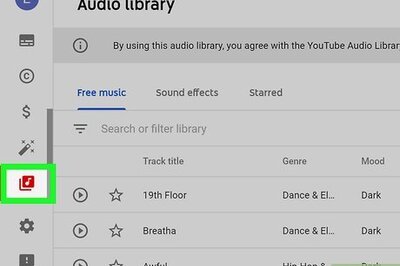
views
It’s normal for our ears to start losing the full range of frequencies as we grow older. According to a study published in the Journal of Otolaryngology in 2021, most humans are able to hear sounds up to 20,000 hertz. This reduces to almost half to 11,500 Hz when they are in their 40s. It gradually drops to 8,000 Hz for adults in their 60s. Taking notes from this study, it becomes important for us to be aware of the decreasing age of our ears. Now, with the help of a hearing health app named Eargym, you can easily check your hearing ability in 30 seconds. Through this app, you can assess the maximum frequency of sound your ear can gauge, which will help in estimating your hearing age.
As soon as you turn on the Eargym app, you will notice that the hertz will be visible on one side of the display, while the ear age is on the other side. When you press the start button on the app to test it, a tone with the frequency will start playing. A siren-like sound will start which will continue till the time you are unable to hear it. The user has to press the pause button as soon as they are unable to hear the sound of the siren. After pausing the video, you will be able to see the age of your ear along with the maximum frequency that your ears can hear. As the voice decreases, so does the age. You must follow the instruction which states, “Press pause when you can no longer hear the tone." while using the app.
In a recent analysis of the results of an app-based version of this test, EarGym found that 47 percent of people between the ages of 16 and 35 have a hearing age that is older than their biological age. The analysis found that the age of the ears of young people is generally 13 years more than their actual age. As per the report of Daily Mail, around 1.2 crore people in the UK are affected by hearing loss. It leads to the development of dementia because loss of hearing is associated with social isolation and cognitive decline.
As per NHS, the common signs of hearing loss include difficulty hearing on the phone or listening to music or TV at a higher volume than other people need.


















Comments
0 comment